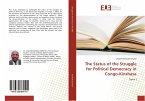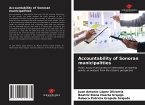This paper draws up a new socio-therapeutic map of neoliberal representative democracy in the particratic era, a product of pure importation into the DRC, after a symptomatic diagnosis of the related pathologies, in order to propose the necessary therapies. This democracy distorts the image of parliament, which is transformed into an apparatus of parties and their powerful elites, cut off from the social world. As a result, it reveals its limitations in terms of governance, state expertise, accountability and parliamentary control of government action. These sudden changes, which are hardly conducive to the centrality of parliament in favor of alternative forms of participation in the conduct and definition of public policy, affect the Congolese institutional model, which finds itself stymied by two very distinct limitations. The first is its inability to adapt to the sociological environment into which it has been transplanted. Doesn't the fact that the DRC's parliament has run out of steam eloquently demonstrate the limits, or even the failure, of an institutional edifice incapable of acclimatizing?
Bitte wählen Sie Ihr Anliegen aus.
Rechnungen
Retourenschein anfordern
Bestellstatus
Storno









